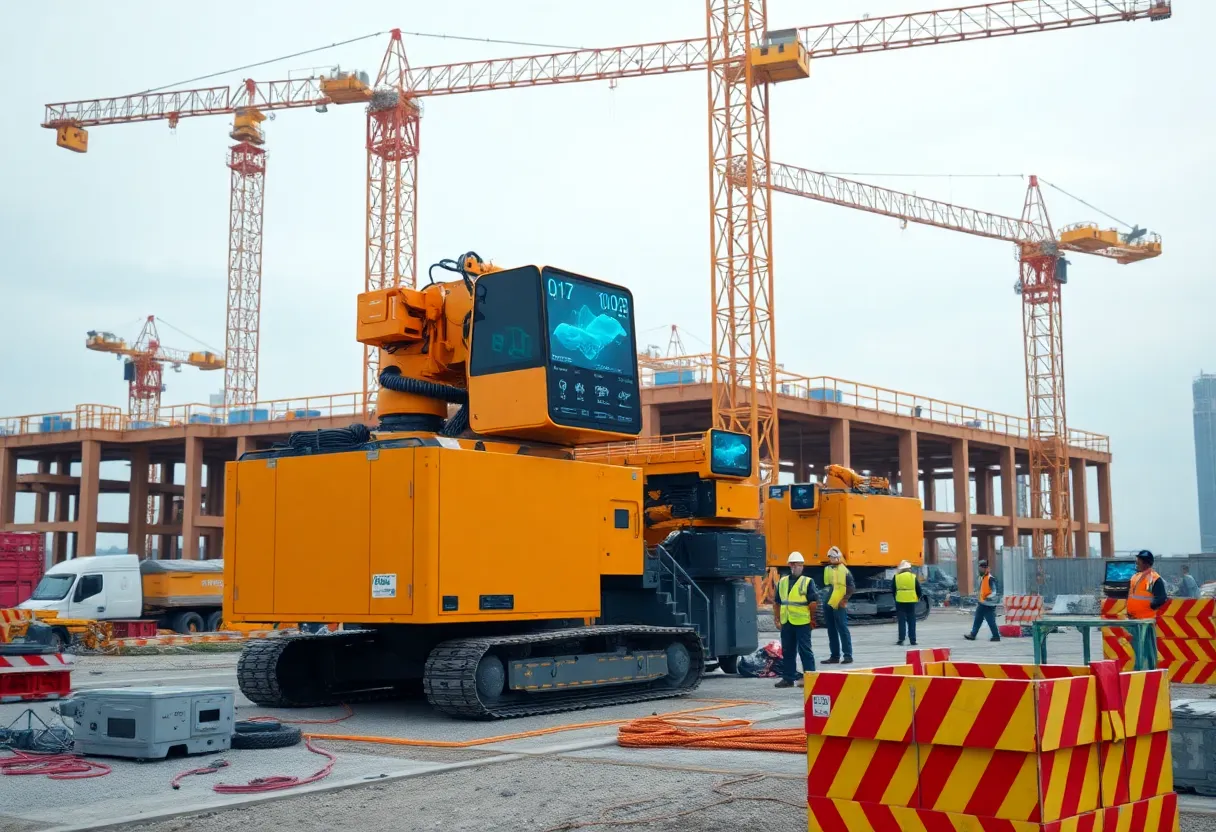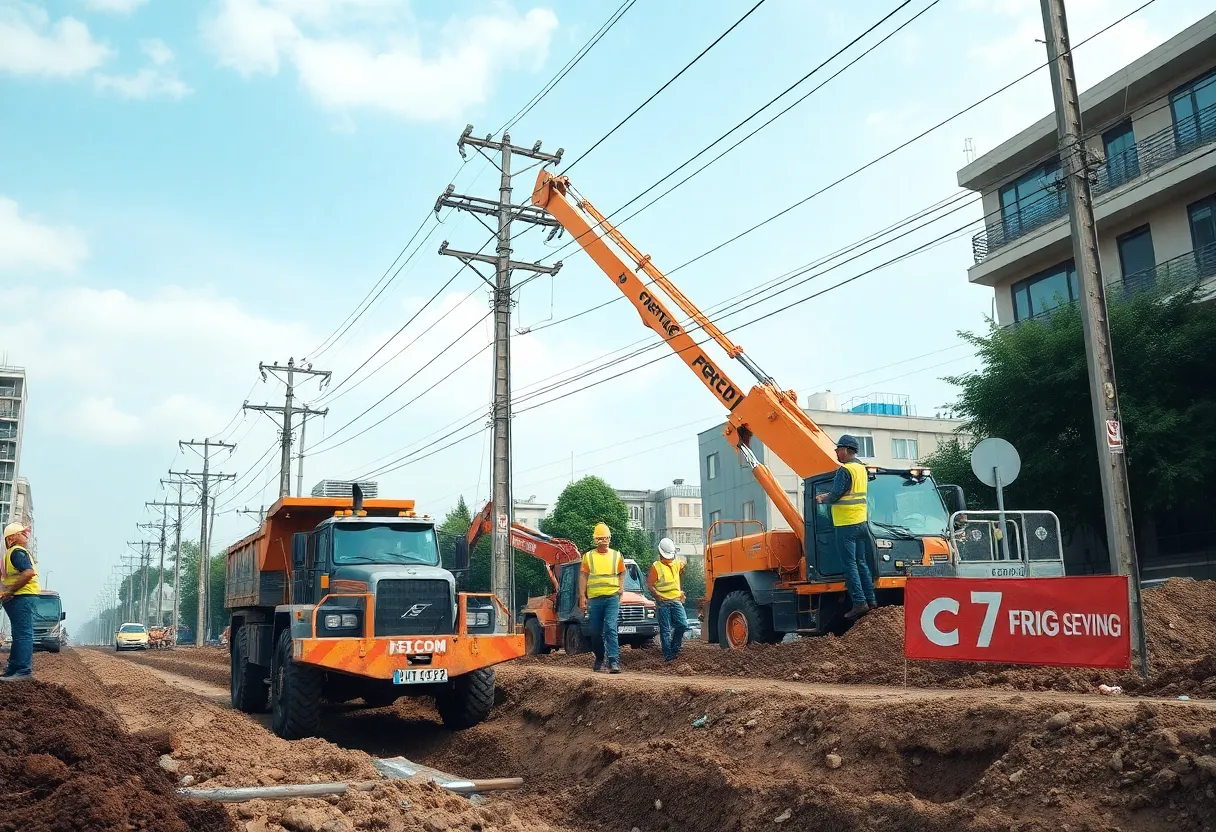News Summary
The integration of artificial intelligence (AI) is transforming the construction and real estate sectors, unlocking new levels of efficiency and enhancing customer experiences. AI is reshaping project management, procurement, and customer relations by automating workflows and providing real-time visibility. Its adoption is particularly impactful in sales and property management, leading to improved client services and significant cost savings. As companies increasingly implement AI solutions, they report higher job satisfaction and an enhanced quality of services, highlighting the ongoing transformation of these industries.
AI Revolution Enhances Construction and Real Estate Industries
The construction and real estate industries are experiencing a significant transformation due to the rapid advancements in artificial intelligence (AI). This evolution is not merely a trend but a substantial shift in operational processes and customer engagement, promising to enhance efficiency across various aspects of these sectors.
Breaking Down Historical Inefficiencies
Traditionally, the real estate and construction sectors relied on a mix of disconnected systems, spreadsheets, and isolated data, which frequently resulted in inefficiencies and delays. These outdated methods hindered project timelines, leading to budget overruns and less-than-ideal client experiences. However, with the incorporation of AI as a commercially vital resource, significant improvements are being reported in project management, procurement, customer service, and field operations.
AI Integration: A New Standard
AI is being integrated into core enterprise applications like Enterprise Resource Planning (ERP) and Customer Relationship Management (CRM). This integration allows organizations to automate workflows and make more informed decisions based on real-time data. In contrast to previous practices of tracking projects and communicating with clients in silos, AI-driven systems promote collaboration among teams, providing a level of visibility that was previously unattainable.
Enhancing Operational Efficiency
AI tools are now able to predict project disruptions such as weather issues or material delivery delays. By offering insights into better resource allocation, these tools help optimize worker deployment and automate project updates, promoting transparency. Furthermore, AI assistants can efficiently handle sales inquiries, craft proposals, and refine leasing processes while also streamlining property management tasks, including rent collection and compliance oversight.
Safety First: AI’s Impact on Compliance
Another value-added benefit of AI in construction and real estate is its role in enhancing safety. By monitoring compliance checklists and generating reports automatically, AI systems can ensure that safety standards are consistently met. According to studies, organizations embracing AI have observed a potential 20% reduction in delays and a 15-20% operational cost saving, indicating a strong incentive for widespread adoption.
Sustainability and Long-term Performance
Moreover, AI contributes to better long-term asset performance and sustainability. By integrating with cutting-edge technologies such as digital twins, IoT sensors, and cloud data management, businesses can improve their environmental footprint while enhancing operational efficiency. Navigating this shift towards AI necessitates astute leadership to address challenges around data quality, integration, and the ethical concerns associated with privacy and transparency.
Job Market Implications
The role of AI in automating various tasks may revolutionize the workforce, with current estimates suggesting that AI could potentially automate 37% of tasks in the real estate sector alone, translating into a staggering $34 billion in efficiency gains by 2030. Although there is concern regarding the impact of automation on job availability, companies implementing AI solutions report greater job satisfaction among workers without increasing staffing numbers. Meanwhile, the improved quality of client service creates a win-win situation for both employees and their customers.
Financial Decision-Making and Market Response
AI technologies also enhance financial decision-making regarding leasing and property management, especially as many commercial leases near expiration. The improved understanding of space efficiency and energy use leads to significant savings for companies. Additionally, the overall labor market health is closely tied to real estate demand, raising questions about how job automation through AI adoption will affect future market dynamics.
The Rise of AI and Authenticity Challenges
Concerns about authenticity in the age of AI are emerging, particularly in online real estate reviews. A projected 23.7% of Zillow agent reviews in 2025 may be written by AI, highlighting the need for systems that ensure genuine feedback from clients. This shift in technology is also paving the way for the creation of startups focused on optimizing the real estate transaction process without relying on conventional agents, indicating a noticeable change in consumer expectations.
As the construction and real estate industries continue to evolve with the AI revolution, the landscape of operations, customer interactions, and market dynamics will be forever altered, promoting a future that emphasizes efficiency, innovation, and improved service delivery.
Deeper Dive: News & Info About This Topic
Additional Resources
- New York Post: Nearly 1 in 4 Zillow Agent Reviews in 2025 Written by AI
- Morgan Stanley: AI in Real Estate 2025
- PYMNTS: AI is Optimizing Physical Office Real Estate
- Wikipedia: Artificial Intelligence
- Axios: Ridley Home Selling Platform – Real Estate AI
Author: Construction NY News
The NEW YORK STAFF WRITER represents the experienced team at constructionnynews.com, your go-to source for actionable local news and information in New York and beyond. Specializing in "news you can use," we cover essential topics like product reviews for personal and business needs, local business directories, politics, real estate trends, neighborhood insights, and state news affecting the area—with deep expertise drawn from years of dedicated reporting and strong community input, including local press releases and business updates. We deliver top reporting on high-value events such as the New York Build Expo, infrastructure breakthroughs, and cutting-edge construction technology showcases. Our coverage extends to key organizations like the Associated General Contractors of New York State and the Building Trades Employers' Association, plus leading businesses in construction and real estate that power the local economy such as Turner Construction Company and CMiC Global. As part of the broader network, including constructioncanews.com, constructiontxnews.com, and constructionflnews.com, we provide comprehensive, credible insights into the dynamic construction landscape across multiple states.





